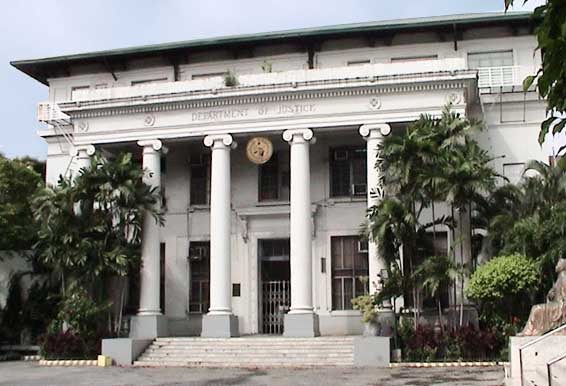
A DEPARTMENT of Justice (DOJ) panel of prosecutors has ordered the indictment of self-confessed drug lord Rolan “Kerwin” Espinosa and 10 others for their alleged involvement in the illegal drug trade in Eastern Visayas from 2011 to 2016.
Aside from Espinosa, the DOJ also indicted Marcelo Labay Adorco, Jose Ortiz Antipuesto, Jose Jernie Estrera, Galo Sptehen Bobares, Ferdinand Rondina, Brian Anthony Zaldivar, Nickjune Canin, Virbeca Diano, Alfred Batistis and Jose Dumaguit.
The DOJ said it found probable cause to indict the respondents for violation of Section 26 (b), in relation to Section 5 of Republic Act 9165.
The said provisions penalizes any attempt or conspiracy to commit illegal drug trade and imposes the punishment of life imprisonment and a fine ranging from P500,000 to P10 million on any person who will be found guilty of the offense.
On the other hand, the panel cleared respondents Maba Limbo, Galo Legaspi, Baysay Custodio, Victor Espina, Martin Espina, Marites Ang, Chief Inspector (CInsp.) Wilfredo Abordo, Police Office 3 (PO3) Dennis Torrefiel, Police Chief Supt. (PCSupt.) Asher Dolina, Police Chief Inspector (PCInsp.) Eufracio Javines, Police Capt. (PCpt.) Bernie Magamay, Police Staff Sergeant (PSSg.) Eduardo Betuin, PSSg. Roberto Arafol, PSSupt. Elizar Egloso, and PSSg. Marvin Parac.
The DOJ said the National Bureau of Investigation (NBI)-Task Force Anti-Illegal Drugs (NBI-TFAID), which investigated and filed the complaint, failed to prove that the said 16 police officers and civilians conspired with Espinosa in selling illegal drugs in the region.
It noted that the NBI’s evidence against 16 respondents were taken from several affidavits, including the extrajudicial confessions of some of the respondents in the case.
However, the DOJ noted that an extra-judicial confession is binding only upon the confessant and is not admissible against his coaccused.
“The reason for the rule is that, on a principle of good faith and mutual convenience, a man’s own acts are binding upon himself, and are evidence against him. So are his conduct and declarations,” the DOJ explained.
“Yet, it would not only be rightly inconvenient, but also manifestly unjust that a man should be bound by the acts of mere unauthorized strangers, and if a party ought not to be bound by the acts of strangers, neither ought their acts or conduct be used as evidence against him,” it added.
On the other hand, the panel took into consideration the extrajudicial confessions made by respondents Espinosa, Adorco, Antipuesto, Bobares, Rondina, Zaldivar, Diano, Estreta, Canin, Batista and Dumaguit in finding probable cause to indict them for conspiring in the illegal drug trade in Eastern Visayas.
The panel explained that a confession is admissible as evidence if it was done voluntarily and with the accused having full knowledge of its consequences and significance.
“It then becomes evidence of a high order, since it is supported by the presumption—a very strong one—that no person of normal mind will deliberately and knowingly confess himself to be the perpetrator of a crime, especially if it be a serious crime, unless prompted by truth and conscience,” the panel stressed.
“Verily, the confessions contained therein are admissible as evidence against them for the crime charged,” it added.
The panel also did not give credence to the recantations of the extrajudicial confessions of Antipuesto, Bobares, Zaldivar and Diano.
It held that their recantations were “insufficient,” thus, must be disregarded.
The NBI filed the complaint before the DOJ following investigation it conducted on the extrajudicial confessions made by Espinosa, the son of slain Albuera, Leyte Mayor Rolando Espinosa.
Espinosa admitted running the illegal drug trade in Eastern Visayas since 2004 and named several of the respondents as among those who took part in the illegal activity.

